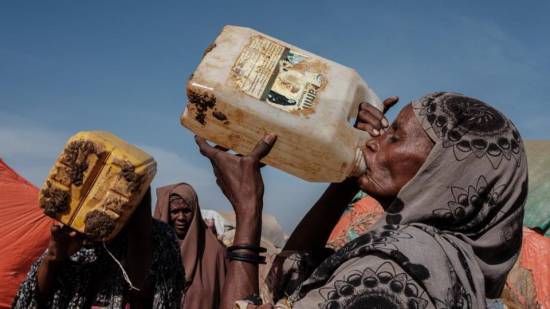UN begs for aid as famine looms in drought-hit Somalia Featured
The United Nations has begged the international community not to forget Somalia, with the chief of humanitarian affairs pleading for more aid as drought puts 200,000 people on the brink of famine.
Appearing on Tuesday in a video press conference from the capital Mogadishu, Under-Secretary-General for Humanitarian Affairs Martin Griffiths recalled the story of a two-year-old girl he met at a hospital on Sunday.
"It was one of those pictures that you don't want to put on television, you don't share, because of her emaciation and her inability to engage because she was so distressed," he said, visibly emotional.
"Today just before this call, she actually passed away," Griffiths said.
And despite the horror of the hospital visit, "what is particularly alarming about it is it's probably worse in the places from which they come," Griffiths said of the girl and her family, insisting on the importance of helping drought victims before they are forced to flee.
Griffiths on Monday had issued a "final warning" about the impending famine facing the country.
Hundreds of children die from nutrition
Somalia has seen four rainy seasons fail since late 2020, leaving 213,000 people in danger of starvation.
Earlier on Tuesday, the UN said about 730 children have died in nutrition centres across Somalia since January, though the true figure could be much higher.
According to Griffiths, it will take another billion dollars "in addition to the about the 1.4 billion that we have in the budget at the moment" to finance a humanitarian plan for Somalia.
"Please don't forget Somalia," he beseeched, addressing countries whose giving has dwindled thanks to economic crises brought on by the war in Ukraine.
"This is unprecedented. And it is for that reason that we've been banging the drum and rattling the trees and trying to get broad international attention," he said.
"Here in Somalia at first, but Ethiopia and Kenya (are) probably not far behind."
Source: AFP


